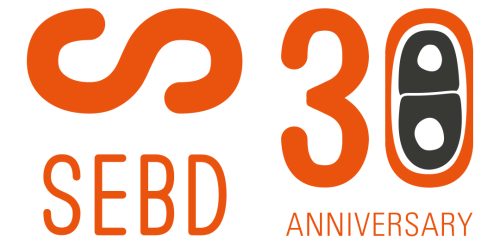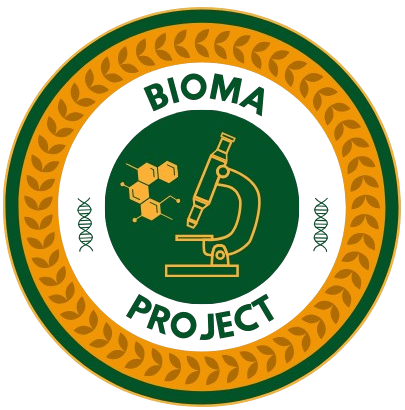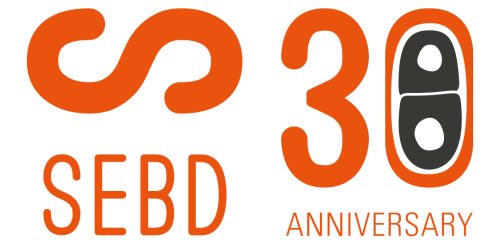This year, we proudly celebrate the 30th anniversary of the Spanish Society for Developmental Biology (SEBD)—a milestone that marks three decades of passion, dedication, and collaboration among Spanish scientists worldwide, committed to uncovering the mechanisms that dictate the development of living organisms. Since its founding the 5th of May of 1994 by the visionary Antonio García-Bellido, SEBD has evolved into a vibrant and inclusive community, uniting established researchers with a growing number of emerging scientists eager to contribute to this dynamic and ever-evolving field. The integrative nature of developmental biology remains essential for understanding processes ranging from regeneration to evolution, and the influx of young talent continues to enrich our Society with fresh ideas and perspectives, ensuring that Spanish science remains at the forefront of innovation.

To commemorate this special occasion, we have gathered interviews with SEBD members who, over the years, have significantly contributed to the Society’s growth and success. These conversations reflect on personal journeys, celebrate key scientific advancements, and emphasize what makes SEBD unique: a combination of scientific excellence, creativity, and a collaborative spirit. They also underscore the Society’s role as a supportive environment where established scientists and early-career researchers work together to expand the boundaries of our understanding.
Through these interviews, we honour not only our rich history but also the exciting future that lies ahead. As we celebrate this milestone, we continue to foster connections, inspire creativity, and build upon the legacy of this extraordinary community. We hope you enjoy these reflections, which celebrate the individuals and the collective achievements that have shaped SEBD over the past 30 years.
We are confident that these qualities, which have made SEBD so special, will continue to drive its success in the future.
Instituto de Neurociencias (IN), Alicante, Spain.
Eloisa Herrera is the current SEBD president. Eloisa’s research focuses on axon guidance and the formation of the nervous system. She investigates the mechanisms by which neurons establish precise connections, shedding light on the processes that shape brain wiring and their implications for developmental disorders. By combining molecular, genetic, and imaging techniques, Eloisa’s work aims to unravel the complexity of neuronal connectivity, providing critical insights into how proper brain architecture is established and maintained during development.
Department of Genetics, Microbiology and Statistics and IBUB, University of Barcelona (UB), Spain.
Sofia J. Araújo is the current SEBD secretary. Her research focuses on the genetic and cellular mechanisms that control branching morphogenesis and cell migration. Her work uses Drosophila as a model to investigate the processes involved in the development of organs like the trachea and nervous system, particularly how single-cell branching mechanisms contribute to organ formation. In addition to her research, Sofia is a keen science communicator and SciArt enthusiast. She is committed to exploring creative ways to make science more accessible, helping to bring complex biological concepts to a wider audience in an engaging and understandable manner.
Universitat Pompeu Fabra (UPF), Barcelona, Spain.
Cristina Pujades specializes in vertebrate neural development, using zebrafish as a model organism to investigate the genetic and cellular processes that govern brain and spinal cord patterning. Her research centers on key processes such as cell migration, differentiation, and the establishment of neural circuits, offering fundamental insights into nervous system development and its evolutionary adaptations. Through her work, she contributes to a deeper understanding of how the nervous system forms and functions across species.
Andalusian Centre for Developmental Biology (CABD), Seville, Spain.
Former SEBD president Fernando Casares is a leading researcher in developmental genetics, with a particular focus on eye development and evolution. His work explores the genetic networks that regulate eye size and shape, primarily using Drosophila as a model organism. Through his research, Fernando has deepened our understanding of how alterations in developmental pathways contribute to morphological diversity, providing valuable insights into the fundamental processes of organogenesis.
Centro Nacional de Investigaciones Cardiovasculares (CNIC), Madrid, Spain.
Former SEBD president Miguel Torres’s research centers on the mechanisms underlying embryonic morphogenesis and tissue regeneration. He has made significant contributions to our understanding of cardiac development, employing cutting-edge tools to construct a dynamic 3D atlas of heart formation. This work has offered valuable insights into the origins of congenital heart defects and holds potential implications for regenerative medicine. Additionally, he investigates endogenous regeneration pathways in the heart, drawing inspiration from highly regenerative species such as amphibians and zebrafish.
Centro de Biología Molecular Severo Ochoa (CBMSO), Madrid, Spain.
Former SEBD treasurer Paola Bovolenta focuses on key signaling pathways, including Wnt and Shh, that regulate brain development. Her research investigates the genetic and cellular mechanisms involved in brain patterning, with a particular emphasis on congenital diseases and brain malformations. Paola’s work has been instrumental in advancing our understanding of the molecular basis of developmental disorders, providing crucial insights into how disruptions in these pathways contribute to neurological conditions.
Centro de Biología Molecular Severo Ochoa (CBMSO), Madrid, Spain.
Former SEBD secretary Miguel Manzanares investigates transcriptional regulation during early embryogenesis, focusing on how molecular mechanisms drive lineage specification and organogenesis. His research aims to uncover the regulatory networks that govern the differentiation of cells and the formation of organs, providing valuable insights into fundamental processes of early development. Additionally, his work has important implications for regenerative medicine, as understanding these processes may contribute to strategies for tissue regeneration and repair.
Centro Nacional de Biotecnología (CNB-CSIC), Madrid, Spain.
Former SEBD treasurer Pilar Cubas is an expert in plant developmental biology, with a focus on the regulation of axillary bud dormancy and shoot branching. Her research delves into the genetic and molecular networks, including the role of TCP genes and strigolactone signaling, that control these processes. By employing model systems such as Arabidopsis thaliana, tomato, and potato, her team investigates how these regulatory mechanisms influence plant adaptation and productivity, providing insights that could enhance crop yield and agricultural sustainability.
Instituto de Neurociencias (IN), Alicante, Spain.
Former SEBD president Ángela Nieto is widely recognized for her pioneering work on epithelial-to-mesenchymal transitions (EMT), processes that are crucial in development, fibrosis, and cancer metastasis. Her research has significantly advanced our understanding of how these cellular transitions regulate embryonic development and the pathological consequences when they are dysregulated. Ángela has received numerous prestigious national and international awards in recognition of her transformative contributions to the field of developmental biology.
Instituto de Biomedicina de Sevilla (IBiS) and professor at the University of Seville, Spain.
This year’s SEBD Science Communication prize winner Luisma Escudero is a researcher best known for his discovery of the scutoid, a geometric shape important for understanding tissue formation and organ development. His work explores how geometry influences cellular packing and tissue organization, contributing to advancements in developmental biology and tissue engineering. Alongside his research, Luisma is an enthusiastic science communicator, and has recently published a children’s book “Papá, ¿cómo se enroscan las caracolas?”, which explains complex scientific concepts like scutoids in an accessible way. Through his research and outreach efforts, he aims to make science more accessible and engaging for the public.
University of Valencia (UV), Spain.
Former SEBD board member Isabel Fariñas is a leading expert in neural stem cell biology, investigating their role in brain development and adult neurogenesis. Her research aims to understand how neural stem cells maintain their potential for regeneration and differentiation throughout life. Isabel’s work has implications for understanding brain plasticity, repair mechanisms, and neurodegenerative diseases. Isabel has received this year’s Ramon y Cajal National Science Award from the Spanish Science Ministry.
All videos were directed and edited by Carlos Estella, CBM, Madrid. They are originally in Spanish, but can be seen with English subtitles at the SEBD YouTube channel.
The post The SEBD turns 30 years old! appeared first on the Node.
sobat, pencinta slots Pernah mendengar istilah “slot gacor” jika? belum bersiaplah, cinta jatuh program sama slot gaco ini. adalah slot mesin selalu yang kasih kemenangan Yup. mesin-mesin, dibilang ini bisa sebagai jagoannya buat membawa come back hasil. tapi cemana,
tekniknya sih nemuin slot demo benar yang Tenang? Bro bahas, kita aja {santai|tenang] di tempat ini di sini



